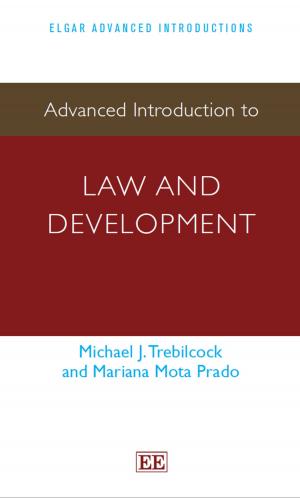Labour Law, Vulnerability and the Regulation of Precarious Work
Nonfiction, Reference & Language, Law, Labour & Employment| Author: | Lisa Rodgers | ISBN: | 9781784715755 |
| Publisher: | Edward Elgar Publishing | Publication: | March 25, 2016 |
| Imprint: | Language: | English |
| Author: | Lisa Rodgers |
| ISBN: | 9781784715755 |
| Publisher: | Edward Elgar Publishing |
| Publication: | March 25, 2016 |
| Imprint: | |
| Language: | English |
The shifting nature of employment practice towards the use of more precarious work forms has caused a crisis in classical labour law and engendered a new wave of regulation. This timely book deftly uses this crisis as an opportunity to explore the notion of precariousness or vulnerability in employment relationships. Its logical structure situates vulnerability in its developmental context before moving on to examine the goals of the regulation of labour law for vulnerability, its current status in the law and case studies of vulnerability such as temporary agency work and domestic work.
The shifting nature of employment practice towards the use of more precarious work forms has caused a crisis in classical labour law and engendered a new wave of regulation. This timely book deftly uses this crisis as an opportunity to explore the notion of precariousness or vulnerability in employment relationships. Its logical structure situates vulnerability in its developmental context before moving on to examine the goals of the regulation of labour law for vulnerability, its current status in the law and case studies of vulnerability such as temporary agency work and domestic work.















